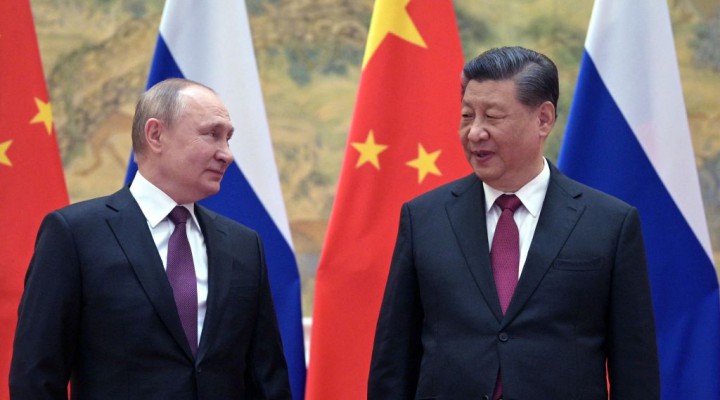Kissinger’s nightmare comes true

The burgeoning Chinese-Russian alliance poses the biggest challenge yet to US global dominance
Friday’s Beijing summit meeting between Xi Jinping and Vladimir Putin, and the joint statement they issued, brings closer to realisation a prospect which Henry Kissinger famously warned would pose the gravest threat to US and Western global influence: a Chinese-Russian alliance.
Putin, according to the statement, returned to Moscow bolstered by an open and binding Chinese commitment to support Russia in any conflict with the US and NATO over the escalating Ukraine crisis.
The most salient points in the statement were the two presidents’ call for a new era in the management of international relations and an end to US hegemony; their opposition to any expansion of NATO; their affirmation of their ‘strong mutual support for their core interests’; and their condemnation of NATO and the AUKUS partnership for undermining international peace and stability.
Tensions between the US and Russia are rising rapidly. The US is airlifting sophisticated weaponry to Ukraine and has deployed thousands of troops to counter any Russian incursion into the rebel Russian-speaking Donbass region. Russia denies having any such intention, but continues to mobilise 130,000 heavily armed troops near the border with Ukraine and is to hold large-scale military exercises in neighbouring Belarus.
Retired US admiral James Stavridis wrote on Bloomberg that he and most other American analysts expect Putin to move ahead with an invasion of Ukraine but halt it within the pro-Russian enclaves in the southeast, though it was possible he would move on to Kyiv to depose the regime there. Russian expert Aleksandr Nazarov, who is close to the authorities, for his part noted that Russia’s ongoing military exercises reflect preparedness not just for war with Ukraine but confrontation with the US and NATO.
The latest theory doing the rounds is that the US wants to lure Russia into a war of attrition in eastern Ukraine, or even the entire country, like the Afghan war in the 1980s. A Ukrainian ‘resistance’ would then be formed like the Afghan mujahideen, and supplied with American weaponry including shoulder-fired anti-aircraft missiles. In the event of a full-scale invasion, a government-in-exile might be formed under President Volodymyr Zelenskiy along the lines of Charles De Gaulle’s Free French government during the Nazi occupation of France.
February could be crucial in determining war or peace in the Ukraine crisis. The flurry of visits by Europe leaders to Moscow and Kyiv reflects a desire to prevent a military explosion. France’s Emmanuel Macron has just been to both capitals, and is to be followed next week by the German chancellor Olaf Scholz.
What worries the US and European leaders most is that KGB veteran Putin is one of the few world leaders who do not flinch from taking military action when core interests are at stake, as he did in Georgia and Crimea. He sees Zelensky as having stabbed Russia in the back by seeking to join NATO and the EU and opening his country to American nuclear weapons. He may become even more determined to chasten him after obtaining China’s support for his Ukraine policy.
https://www.raialyoum.com/kissingers-nightmare-comes-true/
 TheAltWorld
TheAltWorld 
Elenij
Kissinger himself is the nightmare of peace and fairness in international relations among nations. His macabre presence in the bowels of US influence peddling has been the main catalyst of untold horror, bloodshed and chaos on the planet for decades. His pernicious ideology of management by oligarchy must cease…